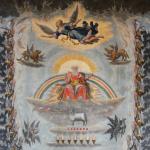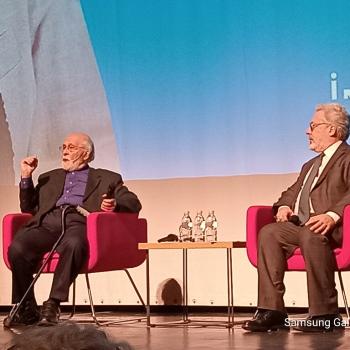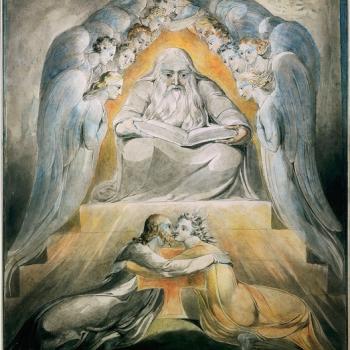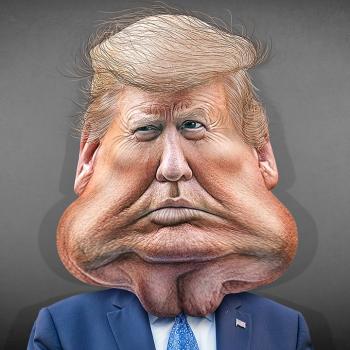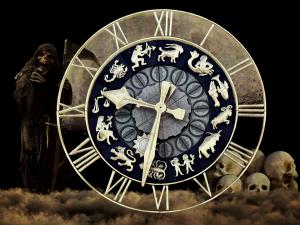
We are contingent beings; this is why, though we have free will, our will has limits as to what it can and cannot do. There are boundaries to our freedom. Nonetheless, those boundaries, those limits, establish the context in which we act. We need that context if we want our actions to have meaning and value. For what we decide to do, given the options we have, not only will show to others, as well as to ourselves, the kind of character we have, it will help form and establish our character. For what we do becomes a part of who and what we are. This is what our free will is about and why we have been given it. It gives us the opportunity to create and establish for ourselves what we want to be. Of course, we also are given some (but not absolute) ability to influence things outside ourselves, that is, to shape the context for our future actions, for what we do not only changes us, but changes the world outside of ourselves as well. That there are things outside of our control does not mean we have no freedom; limited freedom is still freedom, because it means there remains some element of our actions which result from our own personal choice outside of the bounds of necessity.
Tolkien, speaking through the voice of various sages in his writings, tried to deal the problem of free will, reflecting upon how and why it could be said to be preserved even if it were not absolute:
They would not have denied that (say) a man was (may have been) “fated” to meet an enemy of his at a certain time and place, but they would have denied that he was “fated” then to speak to him in terms of hatred, or to slay him. “Will” at a certain grade must enter into many of the complex motions leading to a meeting of persons; but the Eldar held that only those whose efforts of “will” were “free” which were directed to a fully aware purpose. On a journey a man may turn aside, choosing this or that way – e.g. to avoid a marsh, or a steep hill – but this decision is mostly intuitive or half-conscious (as that of an irrational animal) and has only an immediate object of easing his journey. His setting-out may have been a free decision, to achieve some object, but his actual course was largely under physical direction – and it might have led to/or missed a meeting of importance. [1]
Tolkien’s reflections followed along the lines of many medieval thinkers in the way they dealt with predestination (or fate) and human freedom. He did so creatively, as can be seen in the way he turned fate into a category which reflected all those conditions which lay outside our control, that is, into a category related to objectivity. However, he understood, even in situations where fate seemed to have the most influence on our actions, we still had freedom, because we still have the ability to react to whatever it is we experience, for in that reaction, we find we can and will exercise our will. For example, death is a matter of fate; we shall all die, and that fact lies outside of our control; nonetheless, how we deal with death, both in the way we prepare for it all our lives, but also when it is right upon us, indicates where our freedom lies. Thus, while fate often is seen as being opposed to freedom, Tolkien thought that there was a way in which the two could be said to work together. Even when fate seems to have the upper hand, and there are situations which we are “fated” to experience, or actions which we are “fated” to do, Tolkien thought such fate was not absolute and that there remained some room for us to act and react to that fate. Indeed, there could be some good intended for us which, through our actions, we lose or there could be some evil which we are predicted to suffer, but due to the way we exercise our freedom, we circumvent it.[2] Nonetheless, it is clear that Tolkien was concerned about the way we could miss out on some important event, some great good, by the way we act; that is, if we will to do some sort of evil, we could impede our full potential and therefore lose out on various goods which God intended for us.[3]
This follows the way many medieval Christians understood their relationship to the world at large. Though they knew they had freedom, they also knew that many, if not most, of the conditions of their lives were outside of their control. They also knew that many things could and would influence them, and that they must exercise their will to make sure they stayed in control instead of being dominated by such influences. They did not think all such influences were bad, indeed, many, as Hugh of St. Victor explained, were meant for our benefit, but even then, we would have to engage them properly:
God made three wonders of beneficial influence in creation: herbs, precious stones, and the stars. Some herbs have the power to cool down and warm up, causing a complete change in the condition of the body. And all the stars, the planets in particular, have specific effects through the air on bodies subsisting below them. And when the body is changed, its affinity with the soul inside causes the soul to change as well, receiving joy or sadness or other such affections from outside. But these affections do not rule the human soul to such an extent that our actions follow them rather than our discretion and free will. [4]
The problem that most church officials had with astrology was not the notion that the stars could and would influence people and events, but rather, the notion which developed from that premise, the idea that such influence was absolute, making everything outside of our control. Thus, if we look to ancient Christian writings, we will see many, including many of the most educated and holy among them, reflected upon the stars and their influences, that is, engaged some form of astrology, not because they believed the stars established fate, but rather, because they believed those influences could be overridden if we knew of them and actively worked against them.[5] Those who would try to plot the future, as if it were all absolutely predetermined with nothing that we could do to change it, were those whom the church rejected, but otherwise, the premises behind astrology were often taken seriously, and studied side by side with the rest of the astronomical sciences. It is in doing so, moreover, science was able to advance, showing that many of the supposed influences were not there (or very weak), demonstrating how erroneous it was to try to cast horoscopes in order to predetermine what must come to pass.[6]
Thus, though we have free will, we are influenced by things outside of ourselves, some more directly than others. If we let them, those influences could undermine our will. However, no matter how much we follow after them, how much we let them undermine us and our freedom, we never lose it entirely; we never become pure objects without subjectivity. We remains subjects with a will of our own, and though it has been weakened, thanks to grace, we can exercise it, and make it grow stronger, so that we can regain what we lost. This is why, no matter how much we allow “fate” to influence us and direct us, we still can encounter that “fate” and make something of it for ourselves. Our freedom, our ability to make choices always remains with us. We can sense it in every moment of our existence. Even if and when we feel completely trapped by a situation outside of our control, we still try to do something to change it. We do not give up. We feel there is something which we can do. We could not and would not feel trapped if we did not first know and experience freedom for ourselves, indeed, if we did not yet experience at least some level of that freedom, no matter how miniscule, remained with us. For it is that awareness which allows us to know that our freedom has been impeded; if we did not possess it. This is why Tolkien’s examination of “fate” and its relationship with free will is interesting and important because it shows us one of the ways in which our will will always remain free, for we will always have the freedom to determine for ourselves our reaction to that situation, even if that reaction is internal and not capable of changing the situation in and of itself.
[1] J.R.R. Tolkien, “Fate and Free Will,” in The Nature of Middle Earth. Ed. Carl F. Hostetter (Boston: Houghton Mifflin, 2021), 229.
[2] Is that not what happened to the people of Nineveh?
[3] For example, if someone were called to religious life, but did not enter it, they would lose out much of the glory which God desired them to obtain through such a life.
[4] Hugh of St. Victor, “Notes on Genesis,” in Interpretation of Scripture: Practice. Trans. Jan van Zweiten. Ed. Frans van Leiere and Franklin T. Harkins (Turnhout, Belgium: Brepols, 2015), 66
[5] Indeed, in the renaissance, this exactly was what Ficino was doing when he engaged astrology: he was trying to create various means by which human freedom could be increased, not diminished, showing that astrology did not have to be indicative of fate but rather of potentialities.
[6] Nonetheless, the interdependent relationship between all things means all things can and will have some sort of influence upon everything else; the question is not about the possibility of such influence, but how much influence is really there, and it would seem, for most things, it is relatively little.
Stay in touch! Like A Little Bit of Nothing on Facebook.
If you liked what you read, please consider sharing it with your friends and family!


